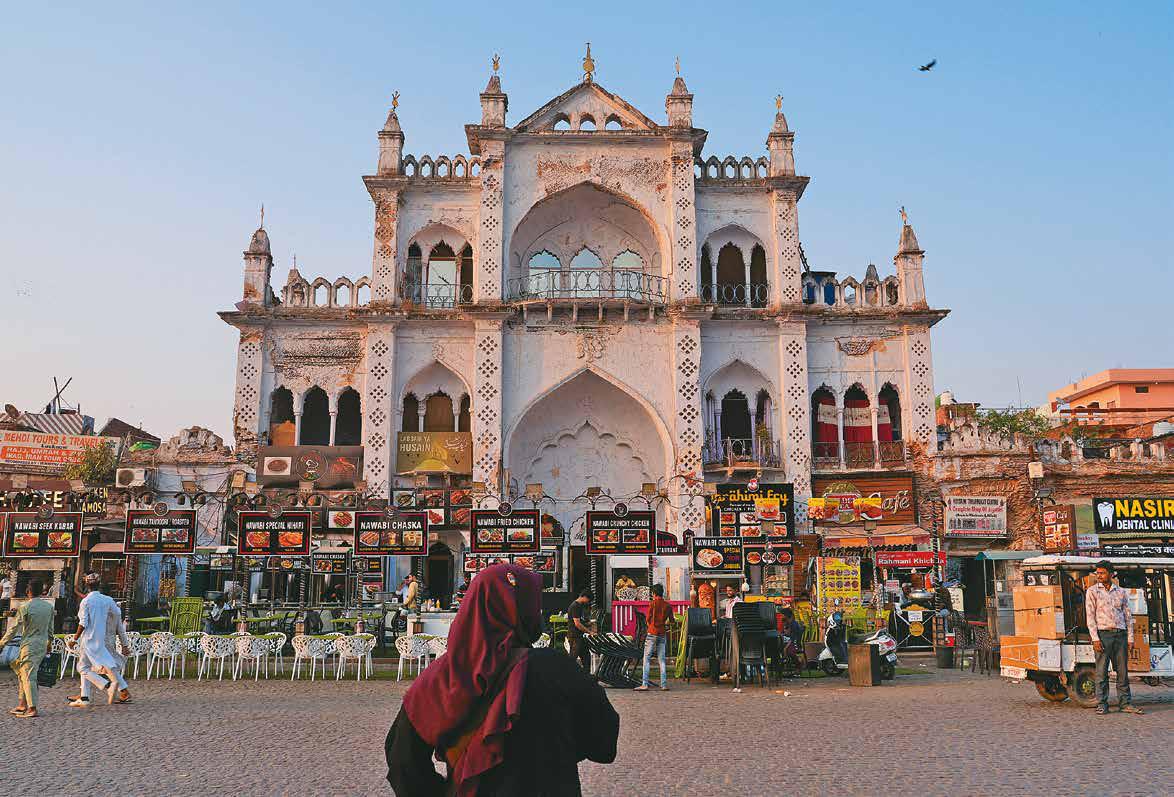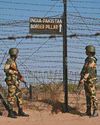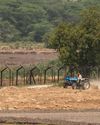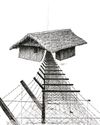Fear Amid Loathing in Lucknow

SAJAD Hussain has lived in the Shia Lines Waqf colony in Lucknow for five years now. His two-storey house is one of the only completed homes in the colony. The government slapped a ceiling case on it three years ago, stopping all construction.
Since then, the neighbourhood, like its structures, has been in a kind of limbo; cement, bricks and lives all kept on hold. When asked about the recently passed Waqf Amendment Act, Hussain laughs. “The Act? Oh, it’s excellent—exactly what we needed.” As he says this, Hussain’s eyes dart towards Bablu Bhai, also known as Syed Haider, the colony’s caretaker, seeking approval.
Haider, who oversees the day-to-day workings of the colony, has been living there for over nine years. He follows us around during our visit to the Shia Lines Waqf colony, whispering to each resident we speak to: “Just tell them about your life, how you are living here. No need to lie, but don’t say anything else.”
Haider is afraid, like every other resident in the Shia colony. They are scared that if one of them was to openly criticise the government in Uttar Pradesh, “a bulldozer might arrive at our gate tomorrow,” explains Hussain.
So, does he really think the 2025 Waqf Act is an excellent move for Muslims in UP? In a hushed tone, eyes darting again to ensure Haider isn’t nearby, he replies, “There is a lot of corruption inside the Waqf Boards, yes. But non-Muslims should not be part of the Boards. This isn’t right. Are there any Hindu institutions into which non-Hindus are forcibly inserted?”
هذه القصة مأخوذة من طبعة May 01, 2025 من Outlook.
ابدأ النسخة التجريبية المجانية من Magzter GOLD لمدة 7 أيام للوصول إلى آلاف القصص المتميزة المنسقة وأكثر من 9,500 مجلة وصحيفة.
بالفعل مشترك ? تسجيل الدخول
هذه القصة مأخوذة من طبعة May 01, 2025 من Outlook.
ابدأ النسخة التجريبية المجانية من Magzter GOLD لمدة 7 أيام للوصول إلى آلاف القصص المتميزة المنسقة وأكثر من 9,500 مجلة وصحيفة.
بالفعل مشترك? تسجيل الدخول
The Art of Leaving
Saying goodbye to the public arena is no easy call to make

Mortar Memory
Along the quiet stretches near the border and the Line of Control in Jammu, a fragile calm once held sway, until the sudden thunder of heavy mortar shells since May 7 shattered it

Borders on the Boil
Whether it is Pakistan, China, Bangladesh or Myanmar, the unfinished business of history haunts the region every day

Neighbourhood 'Frisk' Policy
India needs to relook at Bangladesh as it partners with China to rebuild World War II air bases

Fields of Nowhere
MYAJLAR is one of the last towns on the Jaisalmer border, which, at 464 km, is one of the longest that India shares with Pakistan.

Brittle, Bitter Borders
In the marshlands of the Rann of Kutch, where the border is invisible yet hotly contested, belongingness becomes tentative

Red Fade
Since the regime change, something has been changing in Chhattisgarh. With top Maoist leaders killed, the remaining are insisting on a ceasefire or peace talks. The state must make the most of the situation

Sir Creek and Adam's Bridge
With the recent military standoff between India and Pakistan following the Pahalgam terror attack on April 22 that claimed the lives of 26 people, the Indo-Pak border region with its long history of tensions is once again in the limelight.

Lines Drawn in Blood
In villages caught between two nations, memory and fear shape everyday life. The land is under floodlights, children are sent away in silence, and home is a place one must keep returning to

Maps and Minds
Maps have divided transnational ethnic groups Nagas, Zos, Bhutias, Bengalis and Nepalis, among others, but the Naga or the Zo mind does not accept the boundaries on government maps
